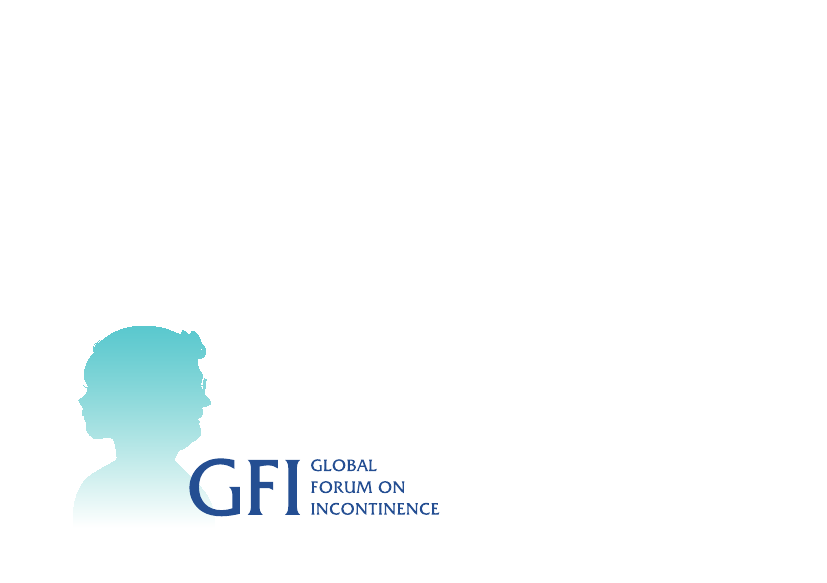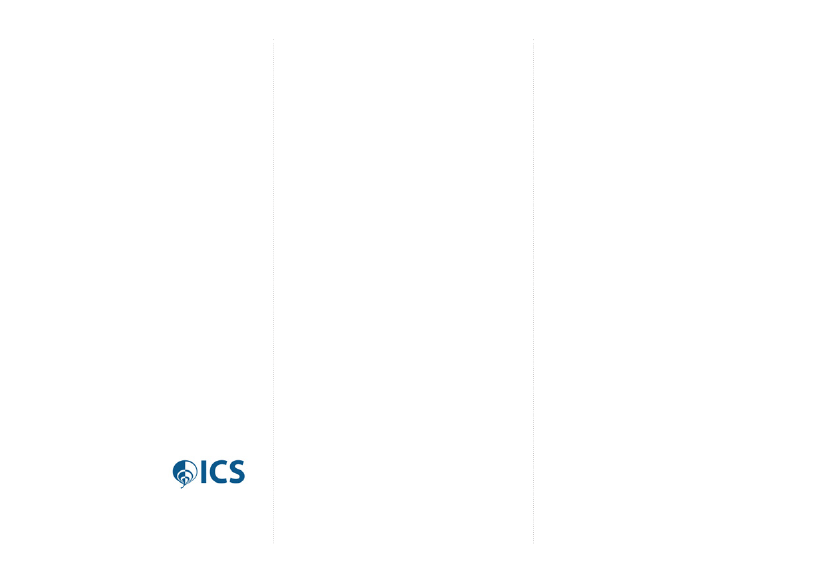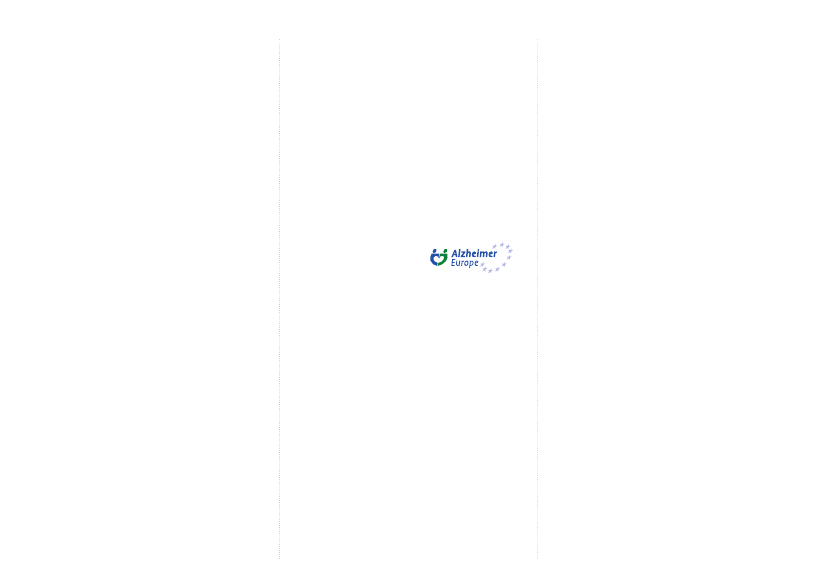Socialudvalget 2013-14
SOU Alm.del Bilag 65
Offentligt
invitAtion5th GlobAl ForuM on inContinenCe
Better care, better health– towards a frameworkfor better continence solutions
8 – 9 April, 2014Hotel Melià CAstillAMAdrid, spAin
Better care, better health – towards aframework for better continence solutionsThe5thGlobal Forum on Incontinenceis a platform for education and debateabout the impact of incontinence onindividuals, caregivers and society. Theobjective is to suggest principles for abetter organization of continence care.Policy makers, health and social care providers, NGOsand medical experts will gather to listen to presentations inthe area of continence care, exchange views and explorewhat opportunities there are to achieve sustainable qualitycontinence care.The conference will foster consensus around the way forwardfor better continence care that can be implemented indifferent local healthcare environments.
TIMINGs
Monday, 7 April:Tuesday, 8 April:Wednesday, 9 April:
Registration from 10:00Welcome buffet 19:00 – 22:30Full day programProgram until 13:00
MOdERATORs
Ian MilsomProfessor, Department of Obstetrics and Gynaecology, Sahlgrenska Academyof the University of Gothenburg, Sweden
Adrian WaggProfessor of Healthy Ageing, University of Alberta, CanadaParticipation by invitation only.
PRELIMINARY PROGRAM AT A GLANCETuEsdAY, APRIL 8Opening sessionINCONTINENCE AND CONTINENCECARE IN TODAY’S SOCIALAND ECONOMIC CONTEXT•The burden of incontinence•Incontinence as a health and social
wEdNEsdAY, APRIL 9Plenary session 2THE IMPACT OF INCONTINENCE– LIVING WITH INCONTINENCE•Emotional impact of incontinence•Incontinence and impact on
Opening sessionTURNING PRINCIPLES INTOPRACTICE – THE CRITICAL ROLEOF STAKEHOLDERS•Integration of health and social care•Care guidelines for people with
policy priority•Incontinence, ageing societies andlong-term care
physical activity•Voices of people with incontienceand their caregivers
Q&APlenary session 1INTRODUCTION TO INCONTINENCE•The medical landscape•Incontinence in older people•Awareness about incontinence among
Panel discussionPlenary session 3THE ORGANIZATION AND DELIVERYOF CONTINENCE CARE:ACCESSIBLE AND SUSTAINABLECONTINENCE CARE•Principles for an ideal organization
dementia and incontinence•Empowering nurses to promotecontinence and manageincontinence across the lifespan•Patient empowerment•What role can policymakers play inimproving the care
Q&AWorking sessionsIMPROVING STANDARDS OF CARE•Country breakout sessions
the general public and among policymakers
Panel discussion
of continence care•Value to society•Connections with the EuropeanInnovation Partnership on Activeand Healthy Ageing
Closing sessionsPRINCIPLES FOR AN IDEALORGANIZATION OF CARE•Feedback of country sessions in plenary•Wrap up and way forward
Panel discussion
Opening session day 1:
INCONTINENCE ANDCONTINENCE CAREIN TODAY’S SOCIAL ANDECONOMIC CONTEXTThe burden of incontinenceIndividual, economical, societal impact ofincontinence.Speaker TBC.
Awareness about incontinenceamong the general publicPresentation of survey results.Speaker TBC.
Voices of people with incontinenceand their caregiversPatients and caregivers.Interviewer:Alan Cottenden,Professor of Conti-nence Technology, University College, London, UK.
Awareness about incontinenceamong policy makersPresentation of survey results.Speaker TBC.
PANEL DISCUSSION
The connection between patientsand policy makersModerator:Ian Milsom,Professor, Department ofObstetrics and Gynaecology, Sahlgrenska Academyof the University of Gothenburg, Sweden.Robert Andrew Johnstone,board member of EPF(European Patients’ Forum).Anne-Sophie Parent,Secretary General of AGEPlatform.Wilfried Schlüter,Professor, EU Affairs/HonoraryPresident of E.D.E. (European Association forDirectors and Providers of Long-Term Care Servicesfor the Elderly).Giovanni Lamura,President Research Organisa-tions Eurocarers, Senior Researcher, INCRA, Italy.Barry Cahill,CEO, Continence Foundationof Australia.
PANEL DISCUSSION
Incontinence as a health andsocial policy priorityKey note speech.Eva Nilsson Bågenholm,MD, NationalCoordinator for elderly care, Swedish Ministryof Health and Social Affairs, Sweden.
The connection between themedical world and policy makersModerator:Francois Haab,Professor, Departmentof Urology, Tenon Hospital, Paris, France.Ruth Kirschner-Hermanns,Professor, Departmentof Neuro-Urology, University of Bonn, Germany.Daniella Marschall-Kehrel,MD, Urological Office,Frankfurt, Germany.Chris Norton,Professor, St Marks Hospital,Harrow, England, UK.Representative of CPME(StandingCommittee of European Doctors).Representative of IAPO(International Allianceof Patients’ Organizations).
Incontinence, ageing societiesand long-term careChallenges for health and social care systems.Kai Leichsenring,European Centre for SocialWelfare Policy and Research, Austria.
Plenary session 1:
INTRODUCTIONTO INCONTINENCEThe medical landscapeA basic medical overview of the disease.Ruth Kirschner-Hermanns,Professor, Department ofNeuro-Urology, Universityof Bonn, Germany.
Plenary session 2:
Plenary session 3:
THE IMPACT OF INCONTINENCE– LIVING WITH INCONTINENCEEmotional impact of incontinenceKarin Coyne,Senior Research Leader, Center forHealth Outcomes Research, Evidera, Unites States.
THE ORGANIZATION ANDDELIVERY OF CONTINENCE CARE– ACCESSIBLE AND SUSTAINABLECONTINENCE CAREPrinciples for an ideal organizationof continence careOptimum Continence Service Specification.Hilary Thomas,Professor, Global Health Practice,KPMG Healthcare and Life Sciences Advisory, UK.
Incontinence in older peopleAdrian Wagg,Professor of Healthy Ageing,University of Alberta, Canada.
Incontinence and impacton physical activityKari Böe,Professor, Norwegian School of SportSciences, Oslo, Norway.
Value to society
Opening session day 2:
Case study for management of continence care,a health economic evaluation.Maiwenn Al,Senior Researcher, Institute forMedical Technology Assessments, ErasmusUniversity, Rotterdam, The Netherlands.
TURNING PRINCIPLES INTOPRACTICE – THE CRITICAL ROLEOF STAKEHOLDERSIntegration of health and social careBreaking down silo-thinking in policy making forcontinence care.John Bowis,Honorary President of Health FirstEurope, former Member of the European Parliamentand former Minister of Health and Social Services,England, UK
Märta Lauritzen,Urotherapist, Head of Urotherapyand Ostomy Therapy Unit, Karolinska UniversityHospital, Stockholm, Sweden, Chair of Sinoba,Association for Knowledge of Urinary Incontinceand Bladder Problems.
Patient empowerment
Connections with the EuropeanInnovation Partnership on Activeand Healthy AgeingMarianne van den Berg,Policy analyst at thedivision of Innovation for Health and Consumersat European Commission Directorate-GeneralHealth and Consumers.
Case study about self-management and technologyas an enabler. Internet-based treatment of stressurinary incontinence.Malin Sjöström,MD, PhD, General Practitioner,researcher at the Department of Public Health andClinical Medicine, Umeå University, Sweden.
Panel discussion
Care guidelines for peoplewith dementia and incontinenceDiane Gove,Informationofficer, Alzheimer Europe.
The role of policy makers, what rolecan policy play in improving the care
Moderator:Adrian Wagg,Professor of HealthyAgeing, University of Alberta, Canada.Marianne van den Berg,Policy analyst at thedivision of Innovation for Health and Consumersat European Commission Directorate-GeneralHealth and Consumers.Jos de Blok,General Manager, Buurtzorg,The Netherlands.Jennifer Bremner,Director of EHMA (EuropeanHealth Management Association).Eva Nilsson Bågenholm,MD, Nationalcoordinator for elderly care, Swedish Ministryof Health and Social Affairs, Sweden.
Case study from Italy on integrated continence care.Antonella Biroli,MD, Neurological and AutonomicDysfunctions Service, S. Giovanni Bosco Hospital,Turin, Italy, Scientific Committee of ItalianContinence Foundation.
Empowering nurses to promotecontinence and manage incontinenceacross the lifespanOverview.Joan Ostaszkiewicz,Research Fellow, DeakinUniversity, Australia.
Working sessions:
IMPROVING STANDARDS OF CARECountry breakout sessions.Closing session:Opportunities to reflect on previous presentations
Panel discussion with nurses
Moderator:Ian Milsom,Professor, Department ofObstetrics and Gynaecology, Sahlgrenska Academyof the University of Gothenburg, Sweden.Joan Ostaszkiewicz,Research Fellow, DeakinUniversity, Australia.Cheryl LeCroy,Clinical Coordinator, VirginiaWomen’s Continence Center, Richmond, Virginia,President SUNA, USA.Melissa Northwood,Manager, St. Joseph’s Health-care Hamilton Continence Care Clinics, AssistantClinical Professor, School of Nursing, McMasterUniversity, CNCA, Canada.Sharon Eustice,Nurse Consultant for Continence,Peninsula Community Health, Cornwall, UK.
PRINCIPLES FOR AN IDEALORGANIZATION OF CAREFeedback of country sessionsin plenaryWrap up and way forward
The program is subject tochange and will be updatedat www.gfiforum.com
ABOuT THE GLOBAL FORuMOF INCONTINENCEThe Global Forum on Incontinence (GFI) is a platform foreducation and debate around continence care. The aimis to improve the health and social care provisions forincontinence, giving patients and caregivers a betterquality of life. GFI demonstrate the impact of incontinenceon the individual and their caregivers and on society asa whole. Continence care is approached from a holisticperspective. The ambition is to present and discuss bothprevention, cure and care options and organization andmanagement aspects.The 5th Global Forum on Incontinence will take place in Madrid, Spain.http://www.gfiforum.com
Location 8 – 9 April, 2014Hotel Meliã CastillaCalle del Capitán Haya, 43Madrid 28020
Previous seminars••••
2006 “The Ageing Barometer” – London2008 “Incontinence – A challenge to society” – Nice2010 “Choosing the right direction” – Prague2012 “Strategies through life” – Copenhagen
Partner:
Endorsers:
Supported by:






